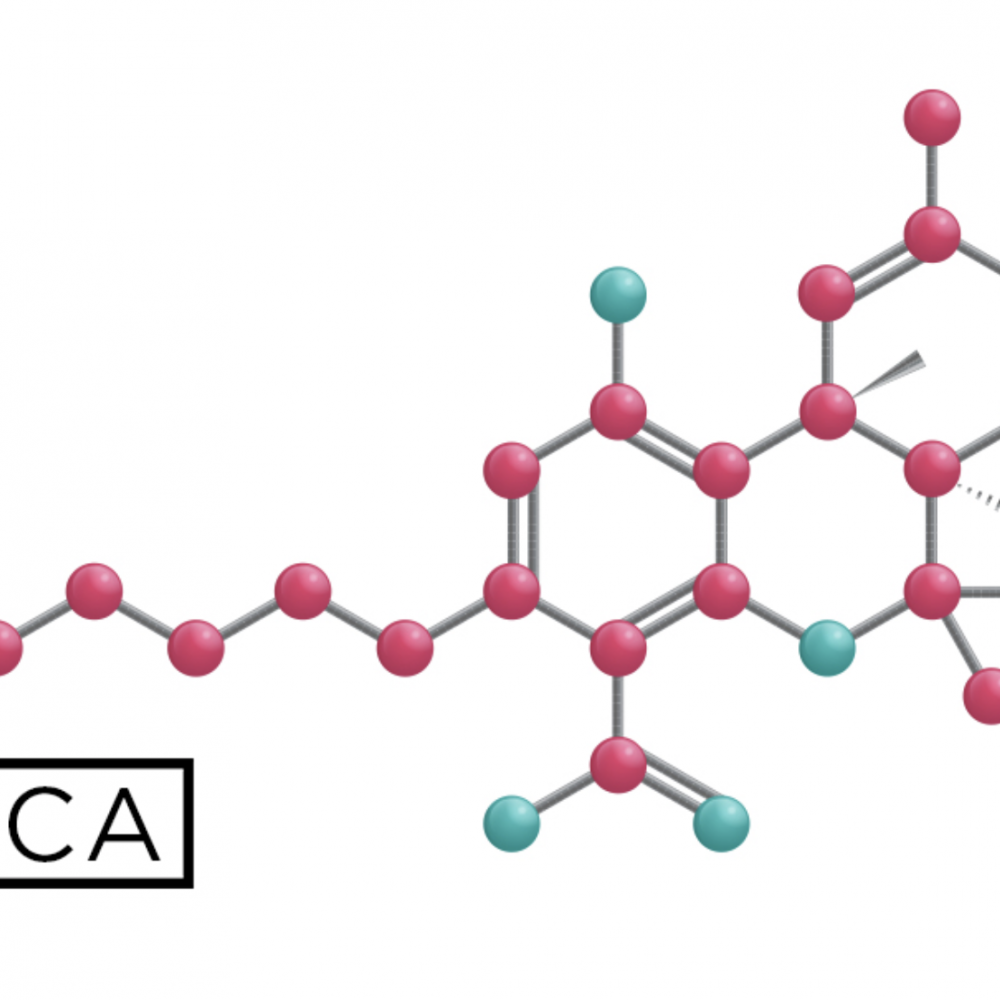Nearly every cannabis consumer knows that the psychoactive effects of their products are due to THC (tetrahydrocannabinol). However, what not everyone realizes is that the cannabinoid would not exist without its originator: THCA (tetrahydrocannabinolic acid). While THC has had extensive research and testing, there is a lack of concrete results on studies of its precursor. What we do know is that the cannabinoid is non-psychoactive and contributes to some of the medicinal benefits of cannabis.
What is THCA?
THCA is the most common cannabinoid in the raw cannabis plant. The cannabinoid comes from the trichomes of the plant and is non-psychoactive. However, when exposed to heat through a process called decarboxylation, the cannabinoid converts to psychoactive THC.
Studies have shown that THCA is non-psychoactive due to the fact that it does not seem to bind to the two major cannabinoid receptors in the human body. These receptors are located in the body’s central nervous system, where they create the intoxicating and pain-relieving effects of THC. Without the process of decarboxylation, the cannabinoid has very little affinity for the cannabinoid type 1 (CB1) receptor. In other words, the cannabinoid is not capable of producing psychoactive effects in the brain. After decarboxylation, THCA then converts to THC, fitting the binding pocket of the CB1 receptor.
While these results are not as certain as studies on THC, there are studies on THCA that show its potential for medicinal use. Extracts that are primarily made up of the cannabinoid are known to have anti-inflammatory and neuroprotective properties. This cannabinoid has also been shown to reduce nausea and vomiting.
Is it Safe?

Image via Weedmaps
Because the cannabinoid has not had extensive research, it is unclear whether it is 100% safe. However, the health benefits of THCA point towards healthy, non-toxic effects. The cannabinoid may be helpful in treating conditions like multiple sclerosis, Alzheimer’s, and also Parkinson’s disease. Research has also shown that the cannabinoid helps to slow the proliferation of cancerous cells.
Is it Legal?
THCA is not scheduled at the federal level as a banned substance. However, this doesn’t make it all clear. The gray area comes from the fact that the cannabinoid could be considered too close in relation to THC. No sample of THCA is completely free of THC. According to Weedmaps, the possession of it could potentially be prosecuted under the Federal Analogue Act. However, you can purchase THCA products in select legal markets.
Additionally, Weedmaps states that, “the presence of THCA in urine can be interpreted as a sign that the individual has been using cannabis, which may have legal implications if he or she is in a state where cannabis is illegal”.
Conclusion
THCA is the most common non-psychoactive cannabinoid found in cannabis. While more research is required to fully understand its effects on the body, the cannabinoid shows potential for incredible medical benefits.
More Content
OPPORTUNITY OR BAG HOLDING: THE NEGATIVE TREND IN CANNABIS STOCKS IN 2021
RMR GUIDE TO THE 21 BEST CANNABIS PRODUCTS OF 2021
8 US STATE’S CURRENT CANNABIS LEGALIZATION STATUS: NY, NC, WY, ID, WI, RI, MD, AND MN
11 COMPANIES THAT DON’T DRUG TEST THEIR EMPLOYEES FOR WEED
8 BEST CANNABIS FRIENDLY TRAVEL DESTINATIONS IN THE US IN 2021








